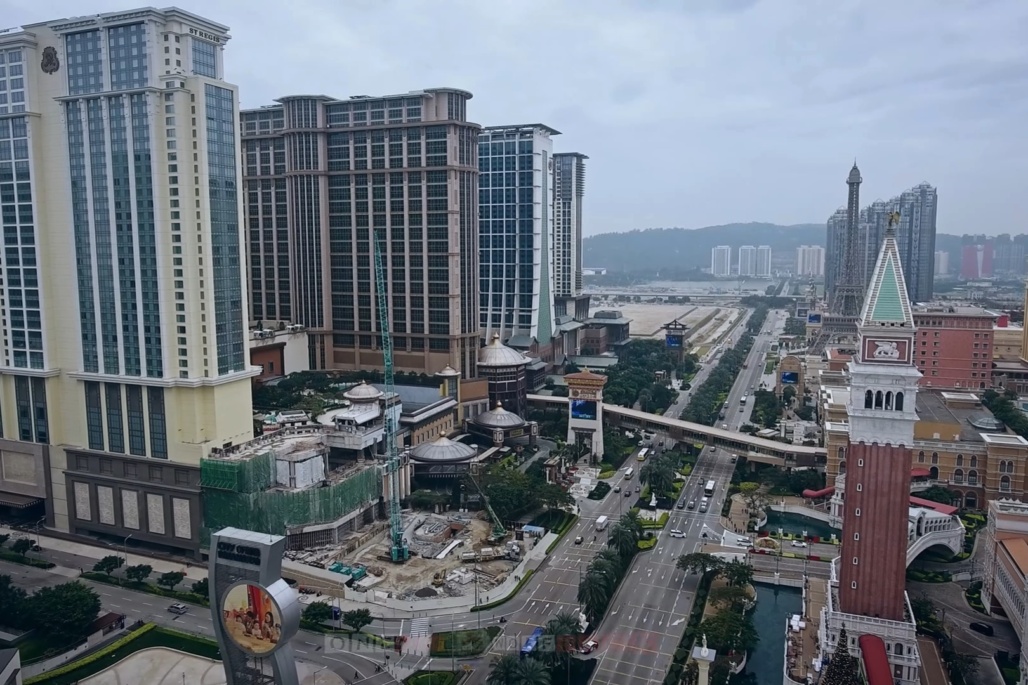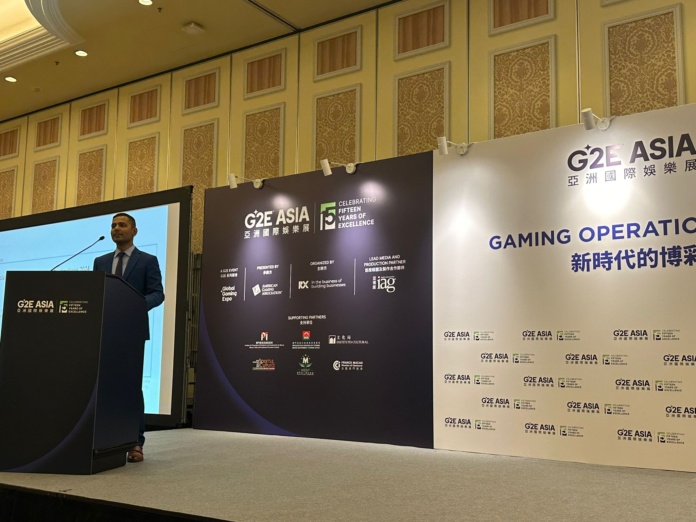Macau’s gross gaming revenue (GGR) future growth will have a strong correlation with China’s nominal GDP, a Morgan Stanley analyst commented today (Tuesday) at the G2E Asia conference.
During a talk focused on the ‘Outlook of Asian Gaming Markets’, Praveen Choudhary, managing director of Morgan Stanley Asia, discussed the factors contributing to Macau’s potential for growth in the next years and the SAR’s possible GGR ceiling.
“We all are trying to figure this out,” Choudhary remarked, addressing the uncertainty surrounding the city’s future GGR.
Macau recorded gross gaming revenue of MOP183.1 billion (US$22.7 billion) in 2023, representing a 334 per cent year-on-year increase. However, this amount was also 62.6 per cent of 2019 levels, casting doubts over the city’s future growth with a much lower VIP sector.
Choudhary emphasized the significant correlation between China’s nominal GDP and Macau’s mass gaming revenue, using historical data as a reference point.
“You have to see when you look at 2024, 2025, what would be the nominal GDP? Not the real GDP, but nominal GDP. That has a perfect correlation with mass revenue,” he explained.
Choudhary pointed out that China’s nominal GDP is currently 20-25 per cent higher than pre-COVID levels, indicating a potential rise in Macau’s gaming revenue.
“The reported number, whether we agree or not, that’s the number. Then you put that percentage, and hopefully, we can get there without doing anything,” he stated.
The number of hotel rooms in Macau has also increased by 16 per cent compared to pre-pandemic figures, with Choudhary noting that many of these new rooms are of higher quality, contributing further to the potential revenue increase.

“Some of these rooms are, dare I say, bigger, better. We look at the Londoner renovation and so on. We can get a little bit more than 16 per cent on any index basis,” he elaborated.
The MS analyst then highlighted the importance of increasing per capita spending to maximize GGR. Using Singapore as a case study, he noted that despite no increase in hotel rooms or visitors, Singapore’s gaming revenue rose by 30-40 per cent.
“The number of rooms in Singapore has not gone up. The number of visitors have not come up. The revenue is up 30, 40 per cent,” he said, emphasizing the potential for Macau to replicate this success.
Choudary then stressed the need to attract high-end visitors and improve the overall quality of the guest experience to drive revenue growth.
The crucial role of the Chinese government support and infrastructure development in driving Macau’s growth was also highlighted, with the MS analyst praising the expansion of the individual visa scheme from 40 to 60 cities, calling it “an incredibly positive signal.”
Recently 10 Chinese mainland cities were added to China’s exit visa system for independent travellers to go to Macau or Hong Kong, known as the Individual Visit Scheme (IVS).
“It doesn’t matter whether those cities are which cities. It’s irrelevant. It’s just that government is saying, I’m going to give you 12 more cities. It’s amazing. It takes away all the risk factors that people think about, ‘Oh, China is against Macau’ [gaming],” he pointed out
Infrastructure improvements, such as new bridges, high-speed trains, and airports, were also highlighted as key factors.
“Mainland putting money on infrastructure to connect to Macau is incredible. We have more bridges, more trains, more speed trains, more airports, Zhuhai Airport, Hong Kong Airport. We really can’t ask more,” Choudhary said.
In conclusion, Choudhary expressed his optimism for Macau’s gaming revenue growth.
“My answer to your question is that I am very hopeful for mass revenue for the next couple of years, at least grow at GDP/plus. If it’s 10 per cent or 12 per cent that’s anybody’s guess, but there is very clear room for growth in the next years.”
Macau News Agency (MNA) is Official Host Publication of G2E Asia + Asian IR Expo 2024




















